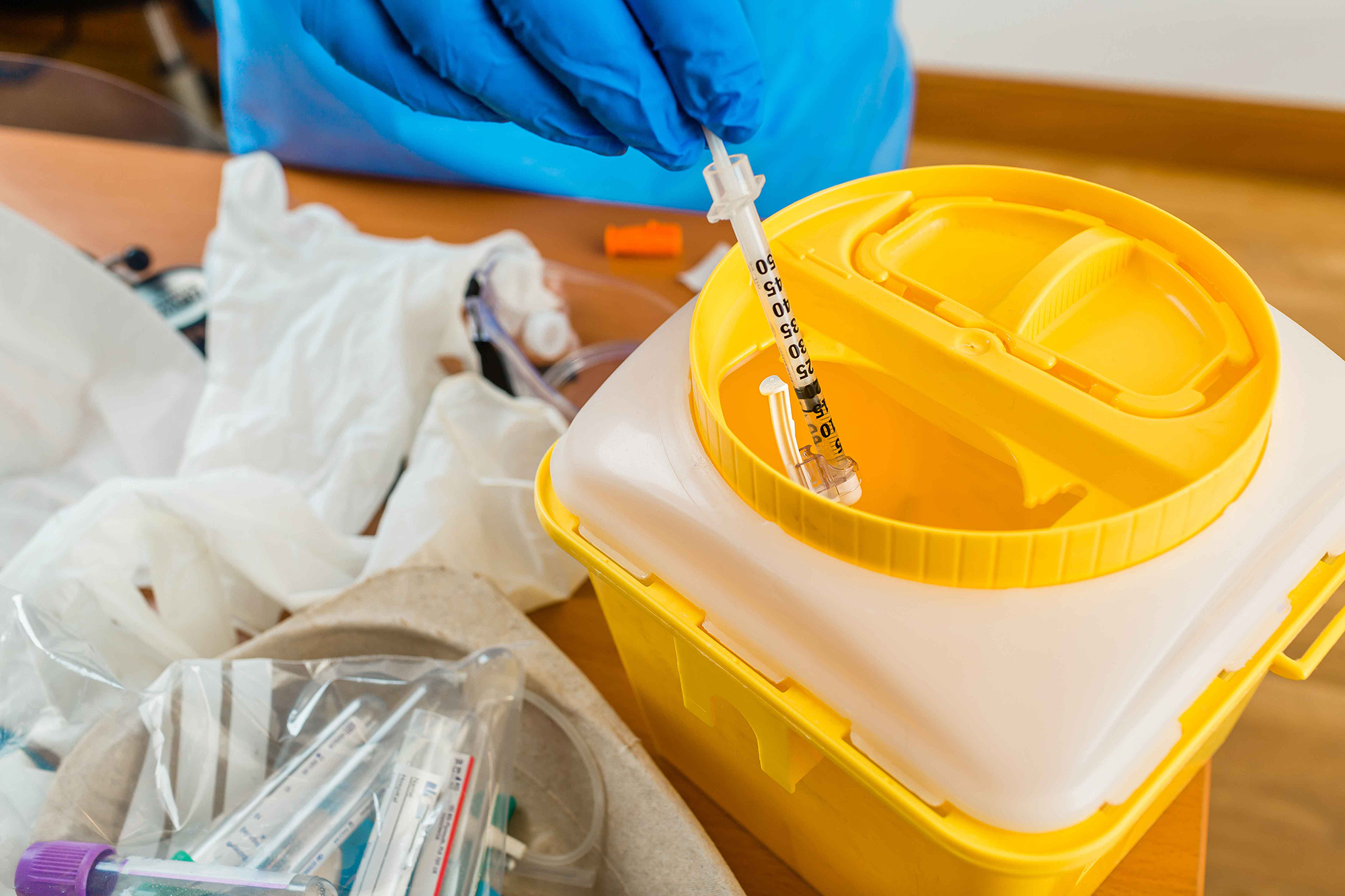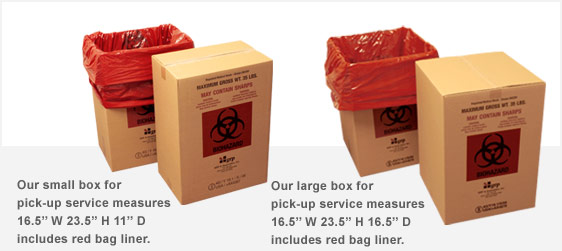Reliable Medical Waste Disposal Services: Partnering for a Cleanser Setting
Reliable Medical Waste Disposal Services: Partnering for a Cleanser Setting
Blog Article
Navigating Medical Garbage Disposal: Essential Services for Medical Care Facilities
Healthcare centers, whether tiny facilities or large hospitals, are left with the duty of handling, treating, and disposing of a wide selection of medical waste streams. Understanding the essential solutions that support clinical waste disposal is not simply a matter of compliance but also a fundamental part in safeguarding public health and wellness and ecological wellness.
Regulatory Compliance Support
For medical care centers, making sure regulatory conformity assistance is vital to preserve correct handling and disposal of medical waste. Sticking to laws stated by organizations such as the Environmental Defense Company (EPA) and the Occupational Safety And Security and Wellness Administration (OSHA) is important to avoid environmental contamination, secure public wellness, and avoid prospective legal effects. Regulatory compliance assistance offers health care centers with support on just how to correctly set apart, shop, transport, and take care of various kinds of clinical waste based on regional, state, and federal laws. This assistance consists of aid in developing and implementing detailed waste administration plans, carrying out regular personnel training sessions, and doing audits to make sure continuous compliance. By partnering with governing compliance specialists, healthcare centers can stay up-to-date on developing policies, mitigate dangers related to incorrect waste disposal, and ultimately add to a safer and more lasting atmosphere for all.
Waste Partition Advice

Health care centers must give clear standards and training to staff on how to segregate waste efficiently. This consists of dividing basic waste from unsafe products such as sharps, contagious waste, drugs, and chemical waste. Color-coded containers, tags, and signs are generally utilized to assist in waste partition methods. Routine audits and tracking of waste partition processes are vital to determine any type of problems and make necessary improvements.
Collection and Transport Providers

Appropriate collection and transportation solutions are vital components of the medical waste disposal procedure in health care centers. These services make sure that harmful products are managed securely and in conformity with guidelines to protect both the setting and public health. Medical care centers rely upon specialized waste monitoring companies to supply reliable collection and transport services tailored to their demands.
Medical waste collection entails setting apart various kinds of waste at the point of generation, making use of color-coded bins or bags to distinguish between basic, hazardous, pharmaceutical, and other waste streams. Trained employees have to do this job to avoid contamination and guarantee correct disposal. Once gathered, the waste is moved in specialized lorries geared up to manage unsafe products safely. These lorries abide by strict security criteria and follow assigned paths to qualified treatment facilities for disposal via methods such as landfilling, sanitation, or incineration.
Treatment and Disposal Solutions
In the world of clinical waste disposal for health care facilities, after the critical phase of collection and transportation solutions, the emphasis shifts in the direction of carrying out efficient therapy and disposal options. Treatment remedies often entail processes such as autoclaving, which makes use of heavy steam under stress to disinfect the waste.
Disposal solutions encompass the final action in the medical waste administration process. Recycling and resource recovery are also acquiring grip as lasting disposal options for certain types of medical waste products.
Reliable treatment and disposal options are critical in making sure conformity with laws and guarding public health and the atmosphere. Health care centers have to meticulously review and select suitable methods that align with their waste management objectives and sustainability campaigns.
Staff Training and Education

To properly handle medical waste i thought about this disposal in healthcare facilities, detailed personnel training and education play an important role in making certain adherence to regulative requirements and preserving a risk-free atmosphere. Proper training furnishes staff with the expertise and abilities needed to handle various types of clinical waste, segregate them properly, and package them securely click for more for disposal. By enlightening employees on the threats related to inappropriate handling of clinical waste, facilities can lower the possibility of accidents, contamination, and governing offenses.

Final Thought
Finally, medical care centers depend on essential clinical waste disposal services to make sure regulative compliance, correct waste segregation, safe collection and transport, reliable therapy and disposal, along with team training and education and learning. These solutions play a crucial duty in keeping the wellness and safety and security of both healthcare workers and the general public, highlighting the relevance of correct monitoring of clinical waste in health care setups.
For health care facilities, ensuring regulatory compliance assistance is essential to keep proper handling and disposal of medical waste. Waste partition involves classifying various types of clinical waste to make certain appropriate handling, therapy, and disposal. This includes dividing general waste from dangerous materials such as sharps, infectious waste, drugs, and chemical waste.Medical waste collection entails setting apart different types of waste at the factor of generation, click for info utilizing color-coded bags or bins to identify between general, unsafe, pharmaceutical, and various other waste streams.In the world of medical waste disposal for medical care centers, after the crucial phase of collection and transportation solutions, the focus changes towards executing reliable treatment and disposal solutions.
Report this page